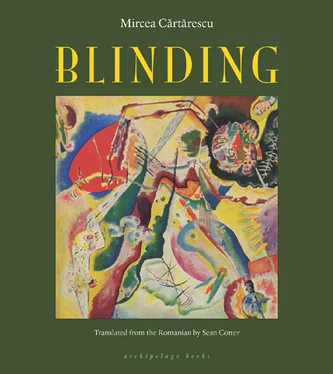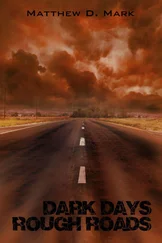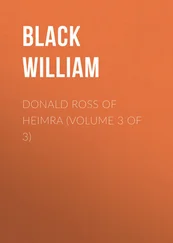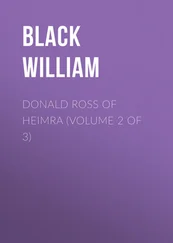The truth is, while I sat all night on the bedstead with my feet on the radiator, not only did I watch the city, but it too spied on me, it too dreamed me, it too became excited, because it was only a substitute for my yellow phantom that stared back from the window when the light was on. I was over twenty years old before this impression left me. By then, they had laid the foundations of the building facing ours, they had decided to widen the street, repave it, demolish the bread factory, the seltzer shop, and the kiosks, and put a wall of apartment buildings, taller than ours, alongside it. The winter was windy, the sky white and clear after a heavy snow. I looked out the window only once in a while. A bulldozer knocked down, with its toothed cup, the building where a fulsome woman had lived, who had never shown herself to me naked. The interior of her rooms was bare and more visible now as ruins, and more sentimental covered in snow. Bucharest was losing a kidney, was having a gland removed, maybe a vital one. Maybe under the skin of the city, like under a wound, there really were caves, and maybe this libidinous housewife who (out of spite?) never showed herself to me naked was somehow a center, a matrix of this underground life. Now the city’s gums crumbled like plaster. Soon, that side of the street looked like a mouth of ruined teeth, with yellowed stumps and gaps and rotting metal caps. The snow smelled wonderful when I opened the thin, wet window and put my buzz-cut head outside, freezing my neck and ears and watching the vapors puff out of the room — but beyond its clear, clean smell of clothes frozen on the line, I could sense the stench of destruction. And if it was true that the cerebral hemispheres developed out of the ancient olfactory bulb, then the stench, the metaphysical drunken breath, the smell of the armpits of time, the dishrag acridity of approaching ecstasy, the air of watercress insanity are, possibly, our most profound thoughts.
In spring, the foundations were excavated, sewer pipes spread like scabies through clay, pink and black cables unrolled from enormous wooden spools, each taller than a person, and concrete skeletons rose up, obscuring one strip of Bucharest after another, choking off the rustling vegetation and blocking up the entryways, gargoyles, cupolas, and stacked terraces of the city. The disorderly and unsteady forms of wood and cast iron, the scaffolds that the workers climbed, the cement mixers that emitted waves of smoke, and the piles of new concrete electrical poles to replace the rusted metal crucifixes all looked like the visible parts of a conspiracy, meant to separate me from Bucharest, and from myself, from my fifteen years spent sitting on the bedstead with my feet on the radiator, pulling the curtain back and watching the vast skies of the city. A section of my mind closes, a wall goes up, and the wall keeps me from accessing all I projected into every cube and square — the black-green and the yellow-green, the moon, thin as a fingernail, reflecting in all of the windows.
When I was seven or eight, my parents made me take a nap every afternoon. The dresser faced the bed, and I would watch my reflection shine on its surface, minute after minute, a child with dark eyes sweating under his sheet and unable to sleep even for a second. When the sun reflecting in the veneer began to blind me, making me see purple spots, I turned my face to the wall to follow every little rust-colored blossom and leaf in the pattern on the upholstered side of the bedstead cabinet. In this floral labyrinth, I discovered little symmetries, unexpected patterns, animal heads and men’s silhouettes, and with these I created stories I meant to continue in my dreams. But sleep never came, there was too much light, and one October, precisely this white light convinced me to play with fire: I listened first for any sounds from my parents’ room, and then I slipped out of bed and tiptoed to the window. The image of the city was dusty and far away. The street curved off toward the left, so I could see the apartments on our side, toward Lezeanu and Obor. In the distance, I could see the old fire watchtower, and behind it, a city heating plant with its parabolic tubes ejecting petrified smoke. The trees appeared straight, or like Gothic arches, but the closest ones betrayed their provenance: the branches filled with trembling, sprouting leaves were not straight but twisted like an unfastened braid. I leaned my forehead against the window and, dizzy with insomnia, waited for five o’clock, but time seemed to have stopped flowing, and the terrifying image of my father bursting through the door — his dark hair knotted in a stocking on top of his head like a fez and falling in a thick line as black as a crow’s tail — kept coming into my head.
Once, during these minutes stolen from obligatory sleep, I contemplated the most beautiful scene in the world. It was after a summer storm, with lightning branching through the suddenly dark sky, so dark that I would not have been able to say if it was darker in my room or outside, with gusts of rain, rapid parallel streams surrounded by a mist of fine drops lazily bouncing in every direction. When the rain stopped, daylight appeared between the black sky and the wet, gray city, as if two infinitely gentle hands were protecting the yellow, fresh, transparent light that lay across these surfaces, coloring them saffron and orange, and turning the air golden, making it shine like a prism. Slowly the clouds broke apart, and other stripes of the same rarified gold fell obliquely, crossing the initial light, making it clearer and cooler and even more intense. Spread over the hills, the Metropolitan towers the color of mercury, all the windows burning like a salt flame and crowned with a rainbow, Bucharest painted itself onto my triptych window, the sash of which my collarbone just touched.
My illumination would be scraped off, and above it, in neat, compact letters, a command would be written, as heavy as a curtain. But today, at the midpoint of my life’s arc, when I have read every book, even those tattooed on the moon and on my skin, even those written with the tip of a needle on the corners of my eyes, when I have seen enough and had enough, when I have systematically dismantled my five senses, when I have loved and hated, when I have raised immortal monuments in copper, when my ears have grown long awaiting our little God, without understanding for a long time that I am just a mite burrowing my trails through his skin of old light, when angels have populated my head like spiro bacteria, when all the sweetness of the world has been consumed and when April and May and June are gone — today, when my skin flakes beneath my ring like thousands of layers of onion paper, today, this vivacious and absurd today, I try to put my disorder into thought. I try to read the runes of windows and apartment balconies full of wet laundry, the apartments across the street that broke my life in two, just like the nautilus that walls over each outgrown compartment and moves into a larger one, inching through the ivory spiral that forms the summary of its life. But this text is not human and I cannot understand it anymore. What remains inside — my birth, my childhood, my adolescence — seeps through the pores of the enormous wall in long enigmatic strands, deformed, anamorphic and foreshortened, nebulized and diffracted, numberless, through which I can reach the small room where I sometimes return. Pearl over pearl over pearl, blue over blue over blue, every age and every house where I have lived (unless it was all a hallucination of nothingness) filters everything that came before, combining it all, making the bands of my life narrower and more heterogeneous. You do not describe the past by writing about old things, but by writing about the haze that exists between yourself and the past. I write about the way my present brain wraps around my brains of smaller and smaller crania, of bones and cartilage and membranes … the tension and discord between my present mind and my mind a moment ago, my mind ten years ago … their interactions as they mix with each other’s images and emotions. There’s so much necrophilia in memory! So much fascination for ruin and rot! It’s like being a forensic pathologist, peering at liquefied organs!
Читать дальше












